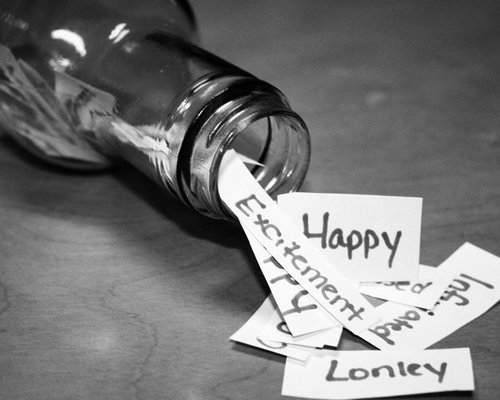As far as emotions go anger is one of the more powerful ones. We can't help ourselves, sometimes we just get angry. People often say that you can't help how you feel, and that's true. Usually that is said when talking about another powerful emotion: love, but it's also true with anger. As with any emotion though it's important to control your actions, even if you can't control your emotions.
That's very true with anger.
Actions taken or words spoken while angry often have larger than intended consequences. We don't want to hurt the ones we love, but our bodies are telling us to lash out. The fact is that anger is an outdated emotion. When we were just beginning, anger was used as a biological response to get us ready to fight, defend, or conquer our obstacles. You know that surge of energy when something really ticks you off? That's your biology.

The problem is that nowadays our enemies aren't sabretooth tigers and we don't need to lift up heavy rocks to make a home. Our obstacles are all in our minds, and anger only clouds our thinking.
Anger is the type of emotion that demands immediate response. Unlike love which lasts a long time, anger is quick to happen and can disappear just as quickly. That's why most of the time proven tips all center around waiting. That said, sometimes you just need to act on it, but not all ways are created equal.

"When angry count to four, if very angry, swear," said Mark Twain. He was known for his level-head so maybe you should take his advice.
The problem is that just waiting doesn't go far enough, and just swearing won't help anything aside from a stubbed toe.
Ways to deal with your anger on the next page!
PsychologyToday wrote about anger management after talking to experts in the field. They agreed that there are generally 3 ways people deal with anger: stuffing it down, shouting it out, and dealing with it.
Guess which one is healthiest?
There have been numerous studies that show repressing anger, sadness or grief has long-term negative physical effects. It will also lead to you lashing out when you don't want to, thus hurting your other relationships. So stuffing it isn't a great idea.

Expressing it is healthy, but you have to keep a calm mind. This is where Twain's advice comes in handy. Take some time to think about why you're angry, and about the situation that causes the feeling in the first place. I got one helpful piece of advice from a teacher once:
"We judge ourselves by our intentions, and others by their actions."
Did the person who upset you mean to upset you? Is there an explanation that you might not have heard? If you were in the other person's shoes, would you have done what they did?

Don't just answer in a knee-jerk way either, really think about it. It won't make your anger go away, but it should help you be able to tell someone how you feel a little better.
Getting rid of your anger is the goal for all of us, and how you do that is going to depend on the situation. In almost every case though, being honest about your feelings has to be the first step, being objective about your own actions must also be involved.
Forgive and forget is hard to do, but it's good advice. Not just for the ones we're mad at, but for ourselves too.

